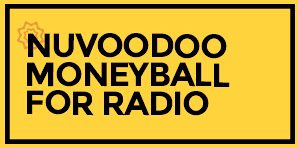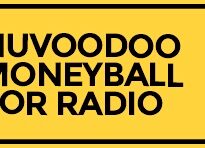Moneyball: What People Like About Listening to Radio in the Car
• Last week we shared the first installment from NuVoodoo Ratings Prospects Study 26 showing that, while apps like Spotify are a factor in the car, radio remains in the lead on the road with those over 25.


Among those who use radio in the car at all, we also asked a couple of questions that respondents answered open-ended, so we’d have additional context for what they like and what they don’t like about using radio there. Last week we published a summary of the dislikes, which fell into three categories: commercials, music repetition, and excessive talking. Responses about what listeners like about listening to radio in the car fall into five categories, so we’re presenting them countdown style (because we’re radio people at heart):
- Companionship & Connection:
Feeling of Company: The radio often provides a sense of “someone is with me,” acting “like a companion,” and preventing the car from being “silent.”
Shared Experience: The idea of “listening to the same stuff at the same time” with other people creates a feeling of being “in the present moment with the rest of the world.”
Relatability: Some find that what people say on the radio “can relate to me.”
- Entertainment & Engagement:
DJ & Host Personalities: Listeners enjoy “hearing my favorite DJ,” “radio personalities,” and the “hosts making jokes” or providing “good energy and good vibes.”
Morning & Talk Shows: “Morning shows” are very popular, with specific mentions of “funny talk shows,” “stories being told,” “trivia games,” and discussions on “topics of my interest” or “viewpoints of other people.”
Live & Authentic Feel: The “live airing,” “real-time” nature, and the sense of “feeling connected to society” are highly valued, distinguishing it from recorded playlists.
Contests & Games: Participation in “contests” and “games” adds an interactive element.
Distraction/Focus: For some, it “keeps me focused when I am driving,” acts as “background noise,” or helps “pass the time and entertain me.”
- Ease of Use & Convenience:
Simplicity & Hands-Free: The most practical benefits include its “ease of access,” being “easy to listen to,” and “hands-free” operation. It’s “just on” and “always available,” not requiring the user to “connect anything” or “mess with my phone or Bluetooth.”
No Data/Internet Dependency: Crucially, many appreciate that it doesn’t “need internet” or “data,” making it a reliable option, especially when phone service is “spotty.” It “doesn’t depend on a charged-up phone.”
Free: The fact that it’s “free” is a recurring and significant advantage over subscription services.
Effortless Entertainment: It’s “thoughtless,” requiring “none of my own effort,” and provides “continuous” content.
- Information & Updates:
Local Focus: A highly valued aspect is access to “local news,” “local updates,” “local information,” and “local events.”
Real-time Relevance: The ability to get “news,” “breaking news,” “traffic updates,” and “weather updates” in “real-time” is crucial for commuters.
Sports & Politics: Specific interest in “local sports programs,” “sports talk,” and “political news” or talk shows about “what is going on in the world.”
- Music (Dominant Theme):
Variety & Discovery: The most frequently cited reason is the sheer “variety of music” and the “automatic playlist” aspect, allowing users to “discover new music” or hear “different types of songs and artists randomly.” Many appreciate not having to “scroll” or “pick channels” or “choose the next song,” enabling them to “concentrate on driving.” Phrases like “always something new on” and “every channel has its own unique playlist” reinforce this.
Genre Preference: Strong preferences for specific genres are evident, with “Country music” being very popular. Other frequently mentioned genres include “80s and 90s music,” “Hip hop,” “R&B,” “Classic Rock,” “Alternative,” “Christian music,” and “Pop music.”
Familiarity & Nostalgia: Many enjoy hearing “songs you haven’t heard in a while,” “old songs that I forgot about,” or “oldies” that “bring back memories” and “connect to my childhood.”
Mood & Relaxation: Music is often cited for its emotional impact, being “relaxing,” “calming,” “soothing,” “feel-good,” or helping to “pass the time” and “make the ride more fun/enjoyable.” It helps “make me happy” and “gets me through traffic.”
Singing Along: The simple pleasure of being able to “sing along” to favorite songs.
Radio retains its appeal in cars not just as a source of music, but as a dynamic, real-time, and locally-connected medium. Its “free” and “easy” nature provides entertainment and information without the need for additional devices or data. The emotional connection to live personalities, the shared experience with a broader audience, and the comfort it offers further solidify its unique place in the in-car experience, even in an era of advanced streaming options.
Next week we’ll start updating our understanding of station contesting. If you’re worried about the outcome of the spring book, it’s a perfect time to review research options. NuVoodoo has library tests and tactical perceptual studies starting at $9500 and many options to make sure we can get the answers you need. An email to tellmemore@nuvoodoo.com will get you a quick response. — Leigh Jacobs




